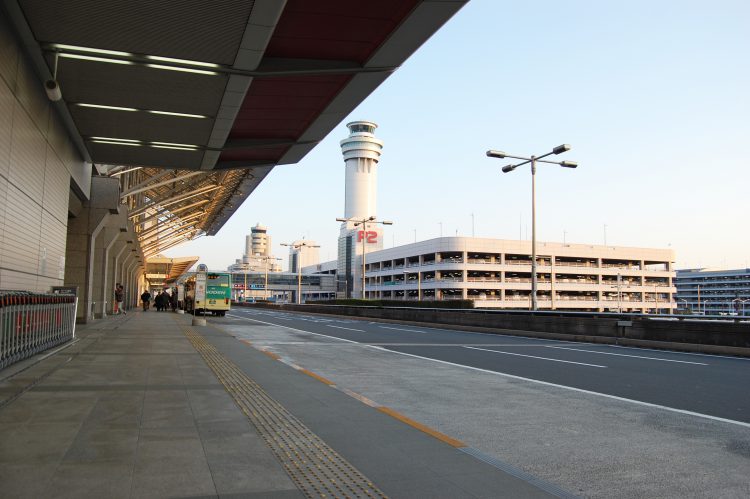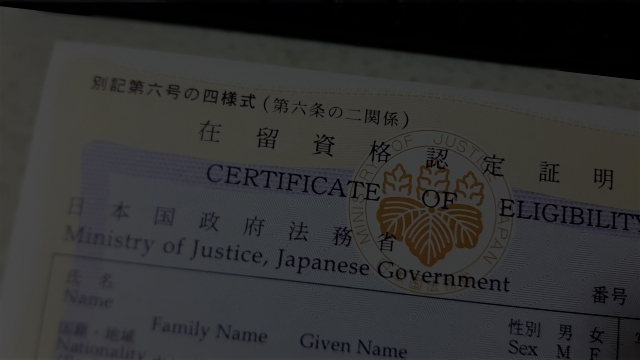
Student Visa
We can support for foreign nationals who want to study Japanese in their home country and study at a Japanese language school in Japan.
We provide support for those who want to study Japanese in their home countries.
Currently, we have connections with a number of Japanese language schools, and we can select the school that best suits the student’s Japanese language level and career path after graduation.
We support students in selecting the best school according to their Japanese language level and career path after graduation, and we support them to have a better life in Japan.
We support our students to make their life as a foreign student in Japan better.

・Support for Coming to Japan and Living in Japan
Support from arrival in Japan to entering Japanese language school
We can also provide other flexible services such as arranging temporary accommodations, choosing a place to live, completing electricity, gas, and water procedures, signing internet and cell phone contracts, opening a bank account, and applying for a certificate of residence and notification of moving in.

・About Part-time Work
Support for studying Japanese for living in Japan
As a general rule, working is not permitted for students studying abroad, but if you wish to work, you must obtain a “Permit to Engage in Activity other than that Permitted under the Status of Residence”.
After obtaining this permit, students are subject to working hours restrictions, which are limited to 28 hours per week. (Work related to adult entertainment is not allowed.)
Working will increase your use of Japanese outside of school, so it is a good way to study.
The type of work you can do will depend on your Japanese level, so if you can communicate in Japanese, you will be able to find a job in Japan eventually.

・Post-Graduation Support
Introduction to higher education and employment opportunities suited to each student.
If you are going to a university or vocational school.
What do you want to do in the future? It is important to know what you want to study at a university or vocational school to achieve this.
We can introduce you to universities and vocational schools that match your needs.
If you want to find a job in Japan, you will need to decide what kind of work you want to do.
The type of work you can do depends on your Japanese level at the time of graduation.
If your Japanese level is high, you will be able to work as much as an ordinary Japanese person.
Even if your Japanese level is low, if you can speak at least Japanese and your native language, you can support people who do not yet understand Japanese very well. Since Japanese will be used even after employment, your Japanese language skills will also improve.
Work Visa
We support those who have graduated from a Japanese language school and want to work in Japan
We provide support for those who have graduated from a Japanese language school and wish to work in Japan, utilizing their Japanese language skills.
We select the level of your Japanese language ability and the type of industry in which you would like to work, and introduce you to companies accordingly.
We introduce companies that match your Japanese level and the type of industry in which you want to work.
We will help you to find a job at a company that has technical intern trainees or specified skilled workers, and to find a job at a company that has a Japanese language school.
We also have jobs to manage technical intern trainees and specified skilled trainees.

◯ Work visa available for (example)
Engineering
- Engineers
- Programmer
- Information Systems Manager
Knowledge of Humanities
- Marketing
- Public Relations
- Product Development
- Planning
- Consulting
- Accounting
- Human Resources
- General Affairs
- Legal
- Specialized Humanities Occupations
International
- Trade
- Translation
- Interpreter
- Language Instructors
- Designer
Acquisition of non-functional species (example)
- Cash register, merchandise display
- Simple sales
- Cleaner
- Hotel room cleaning
- Driver
- Security guard
- Construction site worker
- Factory worker
- Sales
- Waitress
- Cooking assistant
- Wash house
- Floor customer service representative
Obtaining a work visa
There is no age requirement, but graduates of universities, junior colleges, or vocational schools are eligible.
As for working in Japan, as stated above, the work must be equivalent to “technical, humanities, or international” work, and simple labor is not eligible for a work visa. Simple labor includes, for example, customer service work at a convenience store (cash register and taking out products), hall staff at a restaurant, kitchen assistants, and work on a factory line.
The level of Japanese language proficiency required to obtain a work visa depends on the type of work to be performed, and we recommend studying at a Japanese language school to achieve N3 or higher.
As for the expiration date of the work visa, you can continue to work in Japan as long as you renew it before the expiration date ends.
Points to note on the company side
Work Contents
This is to confirm that the work content of the foreigner to be accepted by the company conforms to the Immigration Law. The above is a list of duties that can be legally performed by a foreigner.
Work Experience
The required educational background and experience differ depending on the work visa you wish to obtain.
Remuneration
You must pay the same or higher salary as a Japanese employee.
Knowledge in hiring foreigners
For example, labor-related laws and regulations, application of workers’ accident compensation insurance, social insurance, income tax and inhabitant tax, etc.

Technical Intern
The technical internship system is designed to enable foreign technical intern trainees to
The technical internship program is designed to enable foreign technical intern trainees to acquire, master, and improve skills that are difficult to acquire in their home countries by entering into an employment relationship with a company, private entrepreneur, or other training provider in Japan.
The technical internship program is designed to enable foreign technical intern trainees to acquire, master, and improve skills that are difficult to acquire in their home countries.
The maximum duration of the program is five years, and the acquisition of skills is based on a technical training plan.
Industry / Occupation
Restrictions apply (*The following is an example)
- Agriculture
- Fishing
- Construction
- Food Manufacturing
- Textile, Clothing
- Machinery & Metal
- Welding
- Building Cleaning
- Nursing care
- Lodging
status of residence (in Japan)
Technical training 1, 2, 3.
academic background
No conditions.
age
The target age group is 18 years and older.
Japanese Language Proficiency
The Japanese Language Proficiency Test (JLPT) requires a level of N4, “I can understand basic Japanese.” level is required.
Prospective technical interns are expected to study Japanese in their home country and aim for N4 or higher.
terms of employment
You must pay an equivalent employee salary at least equal to or higher than that of a Japanese national.
Period
The period of stay will be 3~5 years.
There are requirements to stay for 5 years.
Specific Skill
They come to Japan as “specified technical students” and learn skills, techniques and knowledge
and apply them in their home country.
We provide support for those who come to Japan to study.
Many of them are confused at first by the various differences between their home country and Japan, but we provide daily support to help them improve their lives in Japan.
We support them every day to make their life in Japan better.

Industry / Occupation
Restrictions apply (*The following is an example)
- Nursing Care
- Building Cleaning
- Industrial Parts and Materials
- Industrial Machinery Manufacturing
- Construction
- Shipbuilding & Marine Industry
- Automobile maintenance industry
- Aviation
- Lodging
- Agriculture
- Fishing
- Food and Beverage Manufacturing
- Food Service
status of residence (in Japan)
Specified Skills 1 and 2.
academic background
No conditions.
age
The target age group is 18 years and older.
Japanese Language Proficiency
The Japanese Language Proficiency Test (JLPT) requires a level of N4, “I can understand basic Japanese.” level is required. Those who wish to apply for a specific skill should study Japanese in their home country and aim for N4 or higher.
terms of employment
You must pay an equivalent employee salary at least equal to or higher than that of a Japanese national.
Period
In the case of Specified Technical Skill No. 1, 1 year, renewed every 4 months for 6 months (maximum total of 5 years)
For Specified Technical Skill No. 2: 3 years, renewed every 1 year and 6 months








